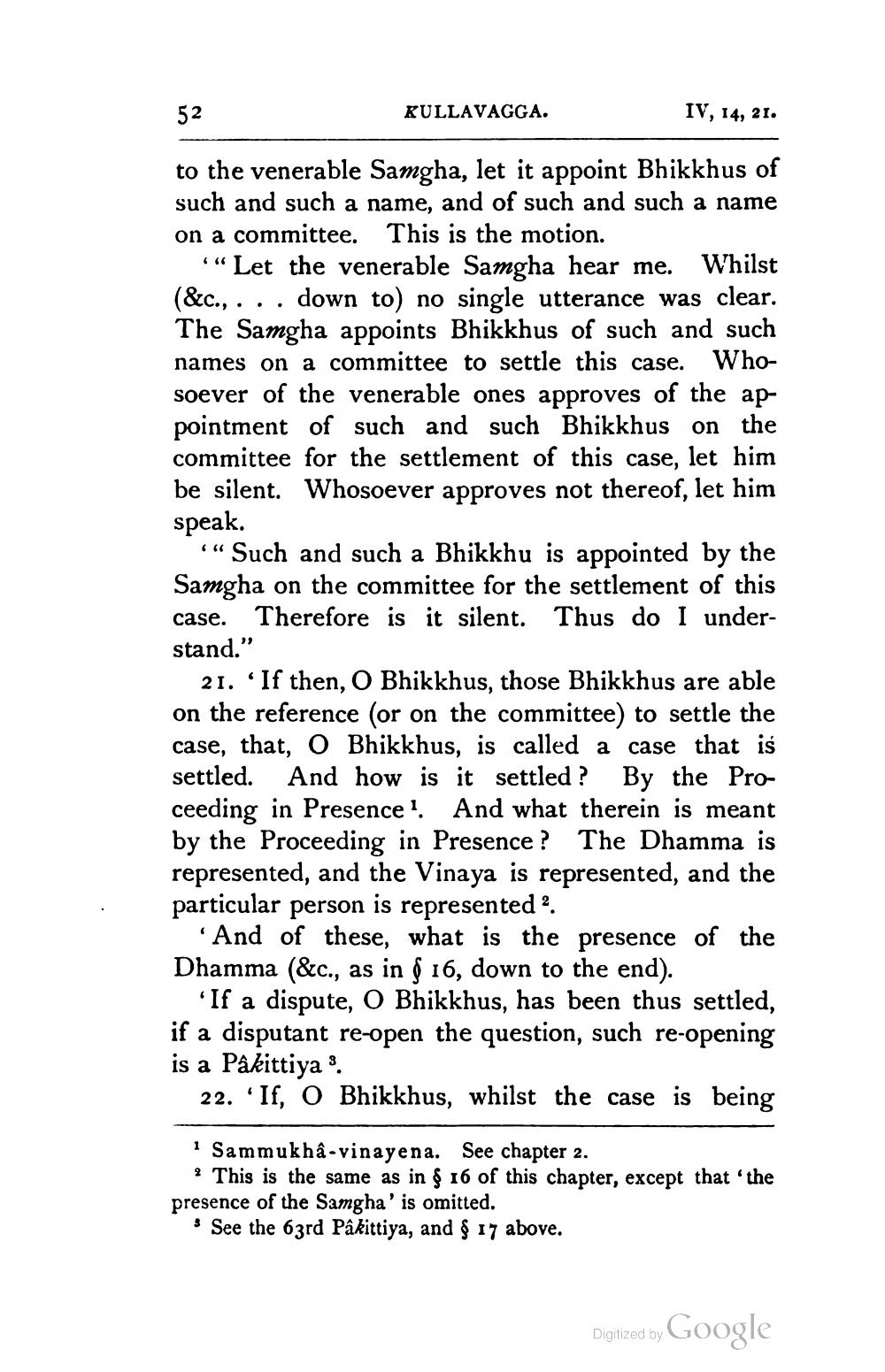________________
KULLAVAGGA.
IV, 14, 21.
52
to the venerable Samgha, let it appoint Bhikkhus of such and such a name, and of such and such a name on a committee. This is the motion.
666
'Let the venerable Samgha hear me. Whilst (&c., . . down to) no single utterance was clear. The Samgha appoints Bhikkhus of such and such names on a committee to settle this case. Whosoever of the venerable ones approves of the appointment of such and such Bhikkhus on the committee for the settlement of this case, let him be silent. Whosoever approves not thereof, let him speak.
6.66
Such and such a Bhikkhu is appointed by the Samgha on the committee for the settlement of this case. Therefore is it silent. Thus do I understand."
21. If then, O Bhikkhus, those Bhikkhus are able on the reference (or on the committee) to settle the case, that, O Bhikkhus, is called a case that is settled. And how is it settled? By the Proceeding in Presence 1. And what therein is meant by the Proceeding in Presence? The Dhamma is represented, and the Vinaya is represented, and the particular person is represented 2.
'And of these, what is the presence of the Dhamma (&c., as in § 16, down to the end).
'If a dispute, O Bhikkhus, has been thus settled, if a disputant re-open the question, such re-opening is a Pâkittiya 3.
22. 'If, O Bhikkhus, whilst the case is being
1 Sammukhâ-vinayena. See chapter 2.
2 This is the same as in § 16 of this chapter, except that 'the presence of the Samgha' is omitted.
See the 63rd Pâkittiya, and § 17 above.
Digitized by Google




